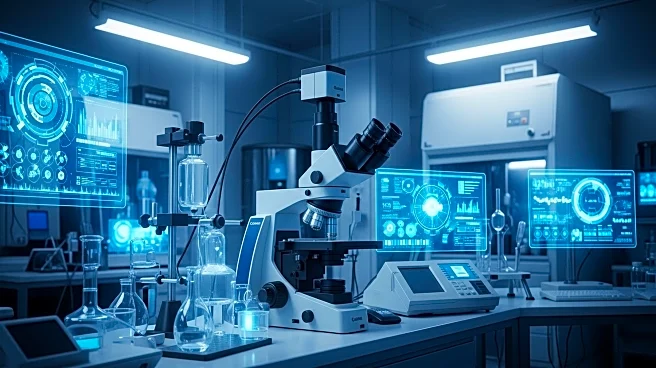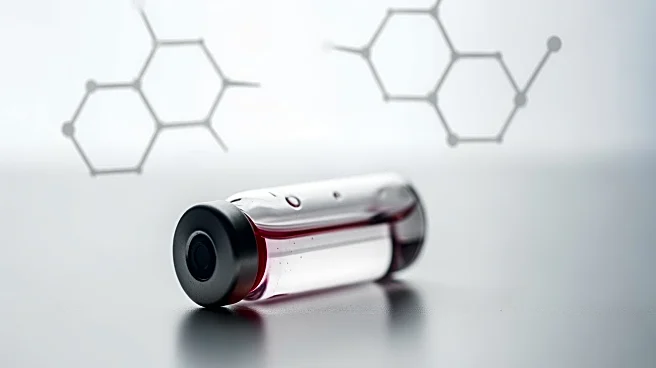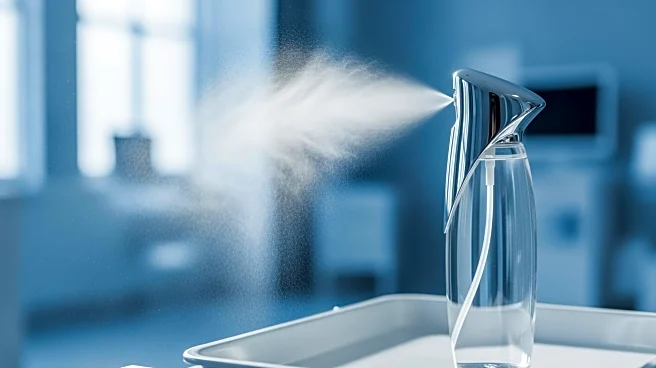What is the story about?
What's Happening?
Novonesis, a Danish biomanufacturing firm, is actively pursuing external innovation by collaborating with startups and corporates to advance biosolutions in food and agriculture. The company is focused on helping startups overcome challenges in scaling their biotechnological innovations, particularly in precision fermentation and downstream processing. Novonesis has established partnerships with companies like Carbios for plastic recycling and Saipem for enzymatic carbon capture. These collaborations aim to develop sustainable solutions that are cost-competitive with traditional petroleum-based products.
Why It's Important?
The efforts by Novonesis to foster innovation in biomanufacturing are crucial for meeting sustainability goals in the industry. By supporting startups, Novonesis is enabling the development of biosolutions that could potentially replace petrochemical products, offering more sustainable alternatives. This approach not only aids in reducing environmental impact but also positions Novonesis as a leader in the biotech sector. The company's focus on high-value pathways and dedicated production facilities could drive significant advancements in the production of future fuels and chemicals.
What's Next?
Novonesis is part of a consortium backed by the Gates Foundation and the Novo Nordisk Foundation, exploring the conversion of carbon dioxide into acetate for fermentation processes. This initiative could lead to the production of low-cost proteins for low- and middle-income countries, presenting a significant opportunity for sustainable development. As these projects progress, Novonesis is likely to continue forming strategic partnerships to enhance its capabilities and expand its market reach.
Beyond the Headlines
The collaboration between Novonesis and other entities highlights the importance of cross-industry partnerships in driving innovation. By leveraging diverse expertise, Novonesis is addressing complex challenges in biomanufacturing, such as regulatory approvals and market access. These efforts could lead to long-term shifts in how industrial processes utilize side streams, potentially transforming them into higher-value products.














